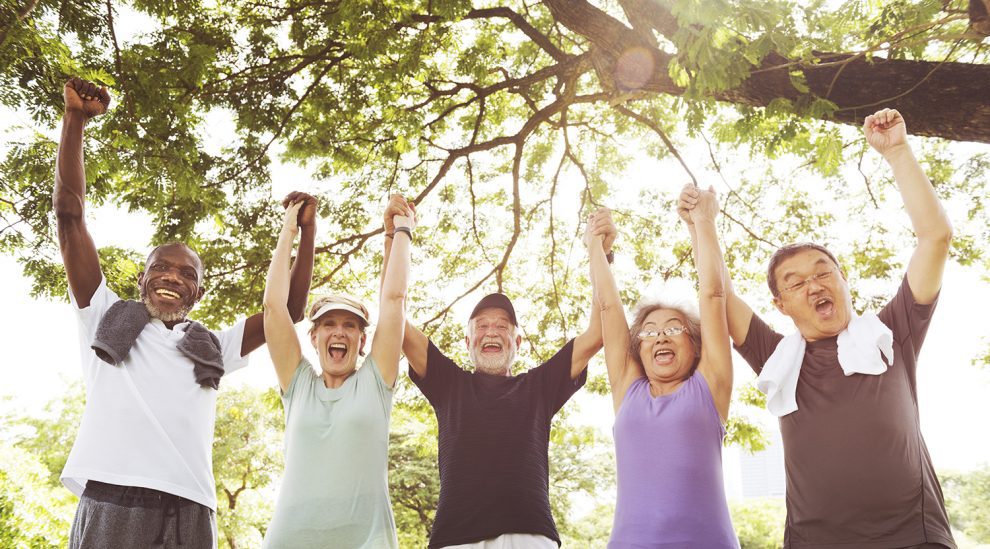Ageism is rife but negative perceptions of older people are not just restricted to the young – research shows older people can also hold bias about ageing which can impair their mental and physical health and enjoyment of life writes Professor Bob Knight.
They say with age comes wisdom, but in a society that values youth over maturity we’re much more likely to value the contributions of younger people. Even though we know Australia is home to an ageing population that’s living and working for longer than ever before, we continue to view older people as having less worth than the more active and mentally agile people we believe they used to be.
Are you calling me old?
Nobody likes to be called old because many of the ways in which we understand ageing have negative connotations. According to the World Health Organisation, classifying people by age promotes a social divide between old and young, portraying older people as frail, past their use-by date, physically weak and mentally slow. In fact, research shows older people make significant contributions to the economy, are mostly healthy and active, and maintain intellect well into old age.
“We tend to associate chronological age with being near the end of the lifespan and close to death,” says Professor Bob Knight from the School of Psychology and Counselling at the University of Southern Queensland who will present his research at the 2016 Australian Psychological Society Congress in Melbourne from 13-16 September.
“We have strong expectations that older adults will be frail, physically ill, cognitively challenged and suffering from dementia. All of those things are more common as you get older but they’re by no means universal.”
Internalising ageing
With these negative stereotypes comes ‘ageism’ which, like sexism and racism, pervades through all aspects of life. “There’s a fair amount of age-related bias in a lot of workplaces as there’s often an assumption, which research suggests is completely untrue, that older workers are not as skilful or productive as younger workers,” says Professor Knight.
“Even at the doctor’s or in a shop, many older people complain that if they’re out with a younger family member people will only talk to the younger family member – even if the older person is asking the questions. Many of my clients also find that people talk to them loudly, whether they’re hearing impaired or not.”
Because older people were young once they too can harbour negative perceptions about ageing. Worryingly, believing that getting old is a bad thing – which psychologists call ‘internalisating bias’ – may affect the mental and physical health of older folks. Research shows that negative perceptions about ageing among older people can increase the risk of depression, anxiety and heart disease, and even shorten the lifespan.
Positive thoughts
So what can we do to reverse negative stereotypes about getting older? At a macro level, Professor Knight says allowing older people to remain visible and viewing them as desirable can help to create a more positive image.
“Direct challenges to ageing stereotypes through portrayals of older people doing active things, older people being healthy, older women still being attractive and older adults involved in romance can really help,” he says.
The ‘advanced style’ phenomenon, a fashion movement that celebrates stylish seniors made popular by photographer Ari Seth Cohen’s blog of the same name, has led to brands better known for targeting young women like fashion label Saint Laurent teaming up with Joni Mitchell and beauty company L’Oreal with Twiggy and Helen Mirren.
At a personal level, Professor Knight says questioning whether stereotypes about ageing apply to ourselves and the people around us can help to dispel popular myths. “It’s about being conscious of these sorts of thoughts and trying to catch ourselves thinking negative things about ageing and wondering whether it’s true,” he says.
“Plus, it’s important for older people to examine the comparisons they’re making to younger people around them and question whether they’re related to age or other factors altogether, such as a specific physical illness or being part of a different generation born and maturing in a different era.”
Bob Knight is a Professor in the School of Psychology and Counselling at the University of Southern Queensland and also works in private practice in Toowoomba. He is board certified in geropsychology in the US. Previously, he was the Merle H. Bensinger Professor of Gerontology and Professor of Psychology and Medicine at the University of Southern California.
Article was originally published on Psychlopedia.





















Add Comment